Sometimes being the “strong one” means nobody checks on you. Like, ever. Your friends lean on you when life gets messy, your family calls you to fix their drama, and at work, you’re the one who keeps it together when everyone else is freaking out. But deep down, you’re tired. Not just “I need a nap” tired, but a bone-deep, soul-crushing exhaustion that nobody sees. That’s what we call strong friend fatigue, and if you’re nodding along, this one’s for you. 😔

I used to pride myself on being the rock for everyone. Breakups, job stress, family fights I was the go-to person, always ready with a pep talk or a shoulder to cry on. But one night, after hours of listening to a friend vent, I found myself crying in the shower at 2 a.m., hiding my own mess so nobody would notice. I wasn’t strong anymore I was burnt out.
In this article, we’re gonna dig into why being the “strong one” can drain you dry, how it sneaks up on you, and real ways to let yourself soften without feeling like you’re letting everyone down. Wanna learn how to set boundaries without guilt? Check out our post on Setting Digital Boundaries Without Guilt. Plus, Verywell Mind has a great piece on emotional labor that’ll give you some insight. Oh, and keep an eye out for an infographic to spot the signs of strong friend fatigue before it takes over. Ready to give your heart a break?
What is Strong Friend Fatigue?
Strong friend fatigue is that heavy, quiet burnout you feel when you’re always the one holding everyone else together. You’re the friend who listens to late-night rants, the coworker who stays calm in a crisis, the family member who fixes everyone’s problems. But while you’re busy being everyone’s rock, your own needs get shoved to the back burner, and that’s where the trouble starts.
Think of it like a battery. You’re constantly giving power listening, advising, comforting but nobody’s plugging you in to recharge. Over time, you run out of juice. Psychology Today calls this emotional labor, where you manage your feelings (and sometimes others’) to keep things smooth. It’s not just tiring it’s exhausting on a whole other level.

For me, it hit hard during a rough patch last year. My best friend was going through a breakup, my sister was stressed about her job, and work was a mess. I was there for everyone, but when I needed to vent, I felt like I had nobody to turn to. I’d smile through it all, but inside, I was falling apart. That’s strong friend fatigue it’s the burnout you don’t see coming until you’re already fried. 😅
Why Do We Become the ‘Strong One’?

So, why do some of us end up as the “strong one”? It’s not just random. There’s a mix of personality, upbringing, and social stuff at play:
- Natural Empathy: Some folks are just wired to care deeply. If you’re super empathetic, you might naturally step into the role of supporter because you feel others’ pain.
- Childhood Roles: Growing up, maybe you were the peacemaker in a chaotic family or the one who took care of siblings. I was the kid who mediated fights between my parents, so being the “stable one” became my thing.
- Past Experiences: If you’ve been through tough stuff like trauma or loss you might’ve learned to rely on yourself, making it hard to lean on others.
- Social Praise: When people call you “so strong” or “always dependable,” it feels good, right? That praise can lock you into the role, even when it’s draining.
- Cultural Vibes: In some cultures, especially for women or certain communities, there’s this expectation to be selfless and stoic. Asking for help? That’s a no-no.
I didn’t even realize I was the “strong one” until a friend pointed it out. She was like, “You’re always there for us, but who’s there for you?” It hit me like a ton of bricks I’d been playing this role my whole life, and I didn’t know how to stop
The Hidden Costs of Being the ‘Strong One’
Being everyone’s rock sounds noble, but it comes with a price. Here’s what it’s doing to you when you’re always the strong one:
- Emotional Exhaustion: You’re soaking up everyone’s feelings friends’ breakups, coworkers’ stress, family drama. It’s like carrying a backpack full of their emotions, and it weighs you down.
- Physical Symptoms: Chronic stress from emotional labor can show up as headaches, tight shoulders, or even stomach issues. Bradley University says stress can up your heart disease risk by 67%. That’s no joke.
- Relationship Strain: If you’re always giving but never receiving, you might start resenting the people you love. I got so mad at my friend for venting to me every day without asking how I was doing, but I never told her I needed a break.
- Mental Health Hits: Suppressing your own emotions can lead to anxiety, depression, or just feeling numb. You might lose touch with what you need.
- Identity Crisis: When your whole vibe is being the “strong one,” it’s hard to know who you are without that role. I forgot what made me happy because I was so focused on everyone else.
One night, I was so drained from helping my sister through a crisis that I snapped at my partner over something dumb, like leaving dishes in the sink. It wasn’t about the dishes it was me hitting my limit. That’s what strong friend fatigue does: it sneaks up and makes you feel like you’re failing at everything
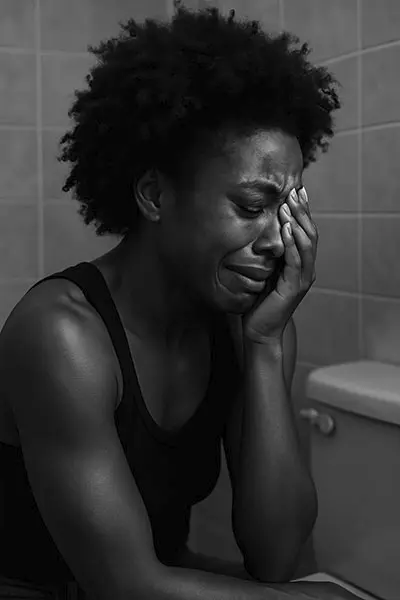
Signs You Might Be Experiencing Strong Friend Fatigue
Not sure if you’re dealing with strong friend fatigue? Here are some signs to watch for:
- You Minimize Your Struggles: You brush off your problems, thinking, “Others have it worse.”
- Guilt Over Emotions: You feel bad for being sad or overwhelmed, like you’re letting people down.
- Physical Tension: Your body’s always tense tight jaw, stiff shoulders, or random headaches.
- Private Breakdowns: You only let yourself cry or vent when nobody’s around, like in the shower or late at night.
- Resentment Creeps In: You start feeling bitter toward the people you help, even if you love them.
- No Reciprocity: You’re always there for others, but nobody checks on you.
I noticed this when I started avoiding my friend’s calls because I just couldn’t handle another vent session. I felt so guilty, but I was just done. If you’re seeing these signs, it’s time to take a step back and give yourself some TLC. 😊
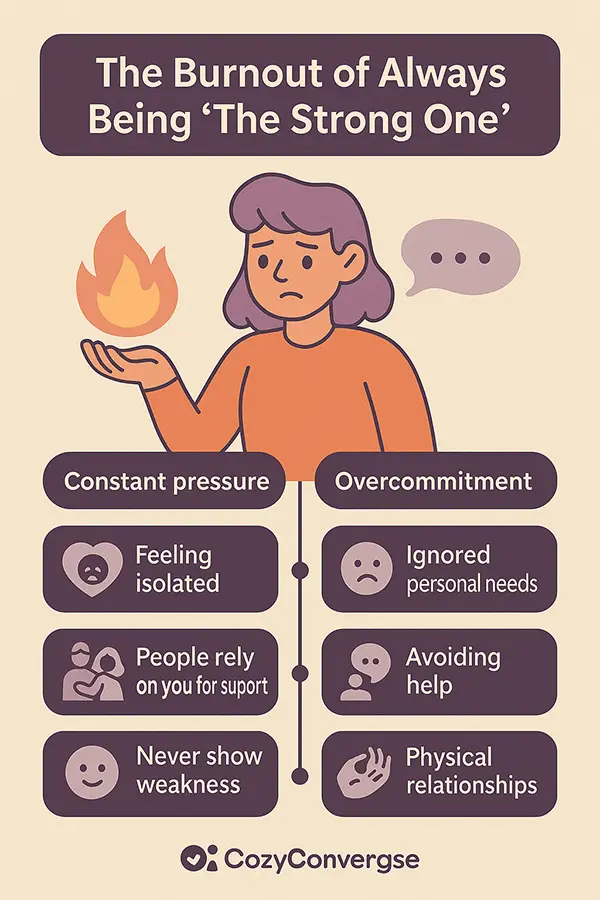
Strategies to Manage and Overcome Strong Friend Fatigue
Alright, let’s get to the good stuff how to stop being the “strong one” 24/7 and start taking care of you. These are practical, doable steps to ease the pressure and find balance:
1. Acknowledge the Cost

First things first: admit that being the strong one’s wearing you out. It’s not weak to say, “I’m tired.” Try writing it down: “My strength’s helped others, but it’s draining me. I need a break.”
I did this in my journal one night after a long day of playing therapist for my friends. Just writing, “I’m exhausted from being everyone’s rock,” felt like letting out a big breath I’d been holding.
2. Allow Safe People to Witness You
Find one or two people you trust friends, family, maybe a partner and practice sharing small vulnerabilities. Say, “I’m feeling overwhelmed,” or “I could use a listener for once.”
I was nervous to tell my best friend I was struggling, but I said, “Hey, I’m kinda falling apart here. Can we talk?” She was there in a heartbeat, and it felt like a weight lifted.
3. Practice Nervous System Safety
When you ask for help or show vulnerability, your brain might freak out, like, “This isn’t safe!” Use grounding techniques to calm it down:
- Deep Breathing: Inhale for 4, hold for 4, exhale for 4. Do it for a minute.
- Weighted Blanket: I got one for my couch, and it’s like a hug when I’m stressed.
- Mantra: Say, “It’s safe to be supported. I deserve help.”
These tricks help your nervous system chill so you can receive support without guilt. Choosing Therapy says grounding can reduce anxiety by calming your fight-or-flight response
4. Redefine Strength
Strength isn’t just about holding it together it’s about flexibility, rest, and asking for help. Real strength is letting others step up so you don’t have to carry it all.
I used to think crying was weak, but now I see it as brave. It’s like saying, “I’m human, and that’s okay.” Try redefining strength for yourself: “Strength is knowing when I need a break.”
5. Release Performative Roles Gradually
You don’t have to stop being supportive overnight. Start small:

- Say No Sometimes: If a friend wants to vent but you’re drained, say, “I’m not up for it right now, but let’s talk tomorrow.”
- Stop Over-Apologizing: Instead of “Sorry, I’m such a mess,” try, “I’m having a tough day can we chat?”
- Let Go of Fixing Everything: You don’t have to solve everyone’s problems. Sometimes, just listening is enough.
I started saying no to late-night vent sessions, and at first, I felt like a jerk. But my friends got it, and it gave me space to breathe.
6. Build Self-Care Habits
Make time for stuff that recharges you:
- Journaling: Write down your feelings for 5 minutes a day. It’s like unloading your brain.
- Nature Walks: A quick walk in the park can reset your nervous system.
- Hobbies: Do something just for you, like painting or reading. I got back into sketching, and it’s like therapy without the bill.
These habits aren’t selfish they’re how you keep your battery charged.
7. Seek Professional Support
If you’re struggling to let go of the “strong one” role, a therapist can help. They’re like a guide for navigating your emotions. BetterHelp has great resources for finding someone who fits your vibe.
I started therapy last year, and it was like having a safe space to be not strong for once. It helped me see I didn’t have to carry it all alone.
Real-Life Stories and Examples
Let’s make this real with some stories:
Sarah’s Story
Sarah was the go-to friend for everyone’s drama. Breakups, job stress, you name it she was there with advice and a hug. But she started feeling resentful, like nobody cared about her struggles. One day, she told her friend Mia, “I love being there for you, but I’m kinda burnt out. Can we talk about me for once?” Mia was super supportive, and it opened the door to a more balanced friendship. Sarah learned that asking for help didn’t make her less she was still the awesome friend, just a human one. 😊

Alex’s Experience
Alex grew up in a family where emotions were a no-go. He became the “strong one” at work, always handling crises with a cool head. But inside, he was battling anxiety. One night, he broke down and told his partner, “I can’t keep pretending I’m okay.” Instead of judgment, he got a big hug and a listening ear. That moment showed him vulnerability wasn’t weakness it was connection.
These stories prove you can step out of the “strong one” role and still be loved. It’s about finding balance, not abandoning your friends
Strong Friend Fatigue in Marginalized Communities
For folks in marginalized communities, like the LGBTQ+ community, strong friend fatigue can hit harder. Societal pressures like discrimination or family rejection can make you feel like you have to be strong to survive. A queer friend of mine said they always felt like they had to be the “rock” for their chosen family, even when they were struggling with their own identity. It was exhausting.

Finding affirming spaces, like LGBTQ+ support groups or online communities, can help. My friend joined a queer book club and started sharing their struggles there. It was like a safe haven where they could be vulnerable without fear. If you’re part of a marginalized group, seek out spaces where you can let your guard down. You deserve to be supported too.
The Science Behind It
Let’s get nerdy for a sec. That exhaustion you feel? It’s not just in your head it’s in your body too. When you’re always the “strong one,” you’re in a state of chronic stress, which keeps your nervous system in fight-or-flight mode. This pumps out cortisol, the stress hormone, which can mess with your sleep, digestion, and even your immune system. Healthline says chronic stress can lead to adrenal fatigue, where your body’s just too tired to keep up.
Your brain’s involved too. The amygdala your fear center gets overactive when you’re suppressing emotions, making you feel on edge all the time. Meanwhile, the prefrontal cortex, which helps you regulate emotions, gets worn out. A 2019 study in Frontiers in Psychology found that emotional suppression increases anxiety and reduces life satisfaction.
Here’s the data:
| Impact | Statistic | Source |
|---|---|---|
| Heart Disease Risk | 67% increase with chronic stress | Bradley University Counseling Center |
| Anxiety Increase | Emotional suppression linked to higher anxiety | Frontiers in Psychology |
| Sleep Disruption | Stress reduces sleep quality by 30% | Sleep Foundation |
Your body’s not built to carry everyone’s weight forever. These strategies can help you recharge and find balance.
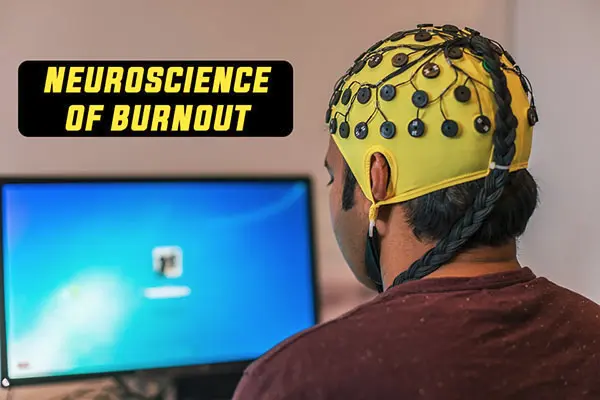
FAQ Emotional Resilience Fatigue
Nope! Showing your real self struggles and all makes people respect you more. Authenticity builds deeper connections than pretending to be unbreakable.
If you’re used to being the “strong one,” letting others help can feel like losing control. It’s just your brain’s old wiring practice makes it feel safer.
With time and effort, yeah! Building new habits, like asking for help and setting boundaries, rewires your brain to see support as normal, not threatening.
Start with small steps, like joining a support group or talking to a therapist. Online communities, like those on The Mighty, can be a great place to connect.
If you’re feeling drained after helping others, avoiding your own emotions, or crying in private, that’s a sign. Listen to your body it’s trying to tell you something.
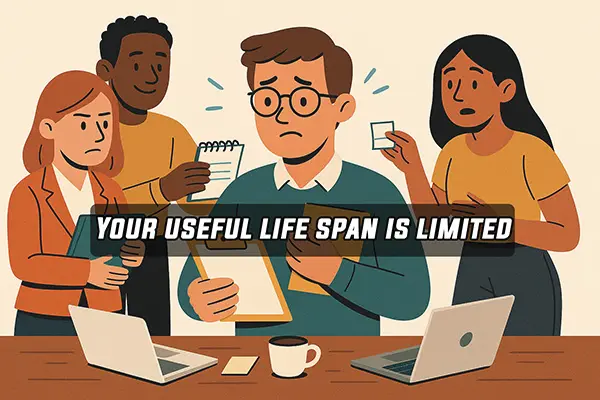
How to Start Addressing Strong Friend Fatigue
Time needed: 10 minutes
How to Start Addressing Strong Friend Fatigue
- Admit You’re Tired
Write down, “I’m exhausted from being strong, and that’s okay.”
- Find Safe People
Pick one or two trusted friends or family to share small struggles with.
- Practice Small Asks
Ask for something simple, like, “Can you listen for a bit?”
- Set Boundaries
Say no to one draining request this week, like a late-night vent session.
- Recharge with Self-Care:
Spend 10 minutes a day on something you love reading, walking, whatever.
- Use Grounding Techniques:
Try deep breathing or a weighted blanket when guilt creeps in.
- Get Professional Help
If it’s too much, a therapist can guide you to balance.
Conclusion
Being the “strong one” is a badge of honor, but it’s also a heavy load. You don’t have to carry it alone. By admitting you’re tired, letting others in, and setting boundaries, you can ease that subtle exhaustion and find a new kind of strength one that includes rest, vulnerability, and asking for help.
You’re not letting anyone down by taking care of yourself. In fact, you’re showing the world what real resilience looks like. So, tonight, try one small step. Tell a friend you’re struggling. Take a walk just for you. You deserve to be seen, supported, and loved not just for your strength, but for your whole, messy, beautiful self. 😊

Citations:
- Verywell Mind – What Is Emotional Labor?: Defines emotional labor as the often unseen emotional effort to manage others’ feelings in both work and personal settings.
- Psychology Today – Burnout and Emotional Exhaustion: Describes burnout as deep emotional, mental, and physical fatigue resulting from prolonged stress across life roles.
- Healthline – Chronic Stress Effects: Explains how chronic stress triggers the body’s fight‑or‑flight response and can damage cardiovascular, immune, digestive systems, and mental health.
- Bradley University – Mental Health Resources: Explores how mental health issues like stress and anxiety can lead to physical illness, and emphasizes the importance of recognizing mind-body connections.
Internal Links:
✨ Last updated on 08.08.2025
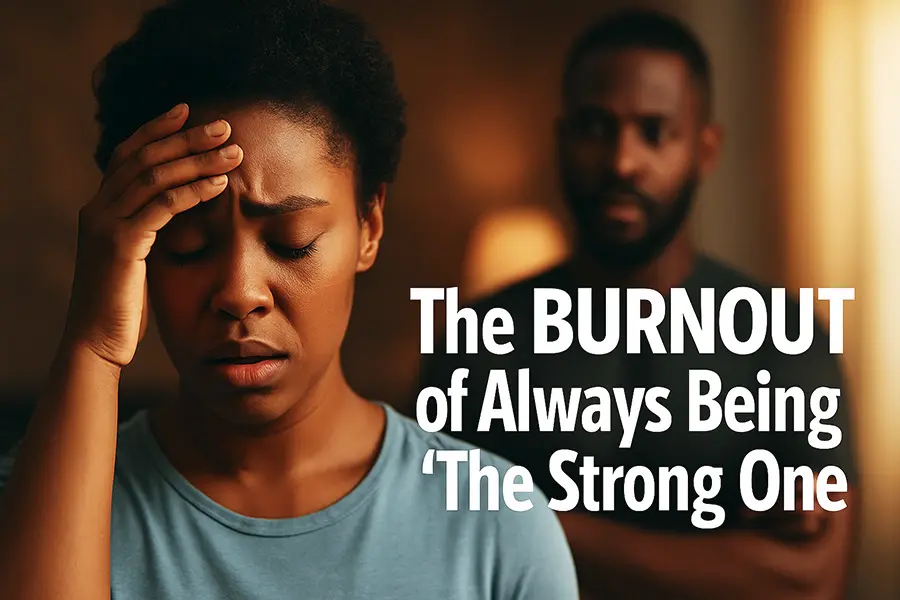










Leave a Reply